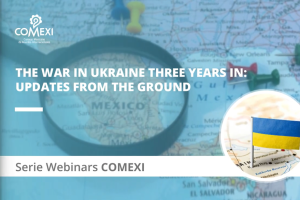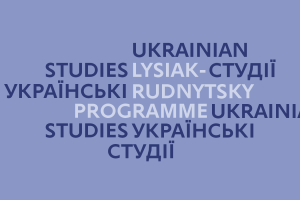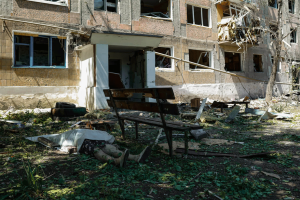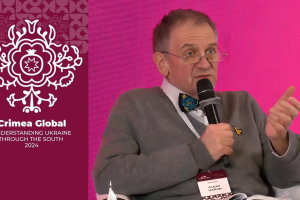Experts: Secrecy around drafting a bill on special aspects of state policy regarding the occupied Donbas is a bigger problem than its content
 Kyiv, October 06, 2017.
Kyiv, October 06, 2017.
At the session of the Verkhovna Rada, people’s deputies of Ukraine considered a draft law on special aspects of state policy regarding restoration of state sovereignty of Ukraine over the temporarily occupied territory of Donetsk and Luhansk regions. At a briefing at Ukraine Crisis Media Center, analysts presented an analysis of the draft law and outlined its strengths and weaknesses.
The draft law actually confirms the status quo at the legislative level. “This also applies to the recognition of the fact of aggression and recognition of the status of the occupying state. Although it is questionable to the international community, because I understand that, first of all, this must be proved by international legal authorities. The very fact of this aggression and of such provisions in Ukrainian domestic law legitimizes certain steps of the state for the domestic consumer of information and may reinforce Ukraine’s position on the international arena at a symbolic and political level,” said Maria Zolkina, analyst at Ilko Kucheriv Democratic Initiatives Foundation.

The only important changes that are envisaged are institutional: the transition from the SBU- coordinated ATO to the establishment of an Operational Headquarters to manage the units and consolidation of the status of occupied territories in Donetsk and Luhansk regions.
Oleksiy Matsuka, Head of the NGO “Donbas Public TV”, noted that via this draft law, Ukraine demonstrates to the international partners that it adheres and will continue to adhere to the Minsk agreements.

“This is proved by the document prolonging the special status, that is, the previous law, which operated but was not fully implemented – on amnesty and other positions. But Ukraine extended its duration and thus demonstrated its readiness to implement the Minsk agreements. Concurrently, the adoption of the law on de-occupation, which uses such terms in the first reading, is seen as a kind of a hint that Ukraine is still ready to take more active action, as Russia is unlikely to be pleased that Ukraine officially recognizes it as an aggressor country,” he said. But according to analysts, if it is adopted, Russia will hardly take any special actions.
Analysts believe that one of the key issues regarding the draft law was lack of communication with the public during its development, said Oleksander Klyuzhev, analyst at network “OPORA”.

In his opinion, such secrecy during the preparation of the document was predictable. “If we speak of the President as holder of the right of legislative initiative, he probably did not want to create any political confrontations and give political opponents in the Verkhovna Rada the opportunity to prepare for a conflict process around these draft laws. On the other hand, opposition political forces have often substantiated the need for a broad debate around these draft laws,” he said.
Analysts note that this state of affairs is dangerous in view of the fact that certain political forces and a part of the public are very critical of the draft law, and serious internal political conflicts are no less threatening for Ukraine than the escalation of hostilities. “These groups must be involved in a civilized dialogue about what the future of Ukraine should be in terms of security and how this situation should be settled,” said Oleksiy Matsuka.
Another important drawback is the ambiguity of certain provisions of the draft law. In particular, the transitional provisions stipulate for the possibility of termination of powers of local self-government bodies in case of introducing a martial law. “The wording does not give a clear understanding whether it concerns solely the local self-government bodies of Donetsk and Luhansk regions, or any areas where martial law can be declared in accordance with the procedure. MPs should remove these ambiguities, because it is important to prevent situations where various decisions and practices regarding the activities of local self-government bodies are applied in different territories under conditions of proclamation of martial law. If we create such a practice, we will enable the enemy to manipulate the facts of different approaches to different territories,” Oleksandr Klyuzhev explained.
Among the positive aspects of the draft law is the declaration of support for relations with the inhabitants of the occupied territories, which is important to ensure the pain-free reintegration process in the future. “Besides, the draft law defines a central executive body – the Ministry for Temporary Occupied Territories and Internally Displaced Persons, which can implement a policy aimed at establishing relations with residents of the occupied territories and meeting their cultural, socio-economic, information needs, etc. Although this draft law does not clearly consolidates the role of one ministry in this process, it gives a certain signal that no fluctuations can be in this policy,” noted Oleksandr Klyuzhev. The declaration of an intention to develop the infrastructure of the front-line territories is also important.
“The draft law is more in the nature of a code of postulates or declarations. However, the state policy consists not only in defining the terms, but also in conveying the new meaning to the activities of other bodies of state power, in particular, specific ministries, with regard to IDPs and those, who does not have such a status,” concluded Maria Zolkina. The analysts noted that this document is more important to the internal audience than to the international one.








